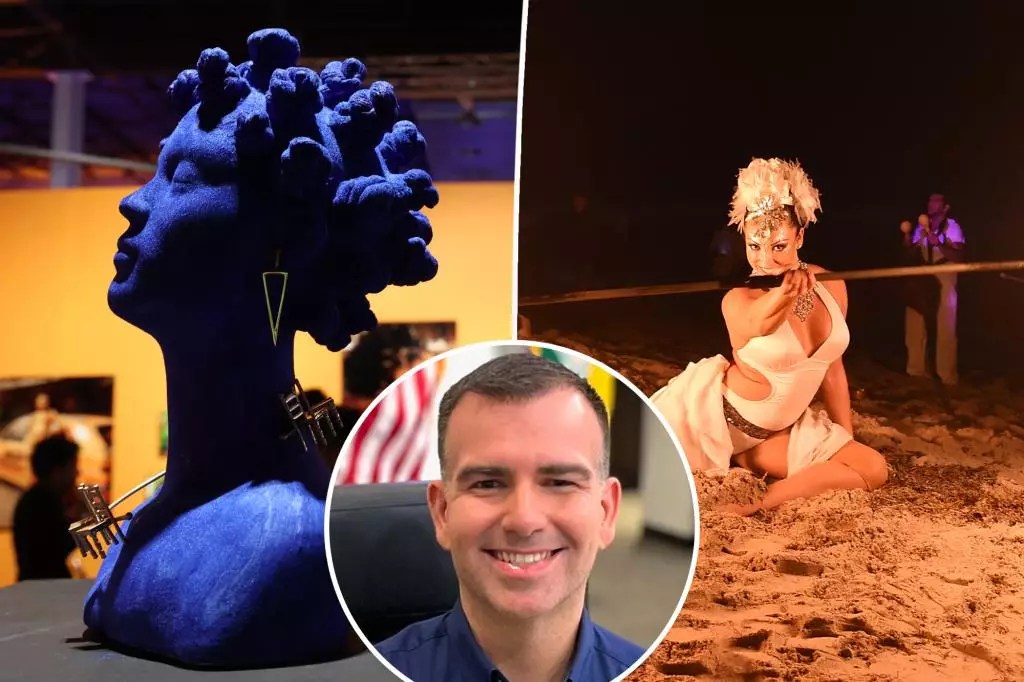In the vibrant and ever-controversial landscape of Miami Beach, a new clash is unfolding as affluent residents resist municipal measures aimed at regulating extravagant gatherings. With Art Basel looming, the stakes are high as millionaire homeowners from elite neighborhoods, including Palm, Star, and Hibiscus Islands, take legal action to protect their infamous parties, deemed crucial to their lifestyles and societal clout.
The Legal Response to New Regulations
Recent developments have seen a trio of high-profile Miami residents—including plastic surgeon and reality television star Leonard Hochstein, CEO of Farmasi Sinan Tuna, and party enthusiast Daniel Vincent Liburdi—file for an emergency injunction against city regulations enacted on November 20. These rules impose strict permit requirements for “commercial-grade” events that include sound systems, dance floors, and even fireworks, effectively setting the stage for possible arrests for non-compliance. The plaintiffs contend they have collectively poured millions into hosting extravagant parties during the annual Art Week, with expenditures ballooning up to $4 million.
In their legal filing, the homeowners claim that these regulations are illegal due to a failure to adhere to proper procedural safeguards, hinting at a lack of adequate public notice prior to their enactment. Their attorney, Richard Wolfe, articulates a deeper concern, emphasizing the potential for chaos if enforcement leads to events being disrupted or party hosts arrested—a notion he finds utterly outrageous. Wolfe insists that their annual celebrations should be allowed to proceed as planned, and advocates for ensuring future regulations are established well in advance to avoid last-minute disruptions.
City Leaders Stand Firm
The response from Miami Beach’s Vice Mayor, Alex Fernandez, has been equally firm but far less sympathetic. Fernandez frames the legal challenge as an attempt by the elite party hosts to avoid necessary safety measures intended to protect residents and maintain community standards. He points out that these lavish gatherings have historically led to disturbances, including disruption of residential peace and issues with emergency vehicle accessibility, violations that threaten public safety.
Fernandez’s position is clear: Miami Beach welcomes the cultural and social intention behind events like Art Basel, but only when they are properly sanctioned and situated in appropriate venues. He touches on the importance of prioritizing residents’ quality of life over the flamboyant aesthetics of high society gatherings.
Complaints from local residents have, unsurprisingly, contributed to the updated regulations. While the affluent party throwers enjoy the glitz and glamour, many locals have expressed frustration about the noise, traffic, and chaos surrounding these large-scale celebrations. Reports from past events indicate that emergency response times may be jeopardized due to road congestion, raising legitimate concerns about public safety.
As Fernandez emphasizes, such events should not interfere with the lives of those who live nearby. The aim is not to squelch the vibrant cultural scene, but rather to balance excitement with responsibility, ensuring that popular festivities respect the fundamental needs of the community.
Interestingly, the parties have become emblematic of a deeper cultural friction. While the high society contingent prides itself on its lavish gatherings as integral aspects of their identity, city officials are increasingly adamant about regulating these events to preserve the local culture and sense of community. The situation exemplifies a struggle between unrestrained luxury and the imperative for societal order, as affluent individuals push back against regulations that they view as infringing upon their social customs.
With the impending Art Basel, which runs from December 6 to 8, tensions will likely escalate. Hochstein, who has cultivated a reputation for throwing sensational parties, is reportedly facing challenges in maintaining his event schedule, despite reassurances from sponsors like the publication Nylon, which is determined to proceed. Yet beneath the surface, concerns linger about the potential for chaos at such gatherings—a climate illustrated by past events that devolved into bedlam with uninvited guests infiltrating the festivities.
The clash over Miami Beach’s party regulations is emblematic of broader societal concerns about public safety, community rights, and the balance of privilege in urban spaces. As the legal battle unfolds, it may set important precedents for how cities manage the intersection of high society and cultural events against the backdrop of community wellbeing. The outcome will not only impact this year’s Art Basel festivities but could also redefine how Miami Beach engages with its affluent residents moving forward.







Leave a Reply